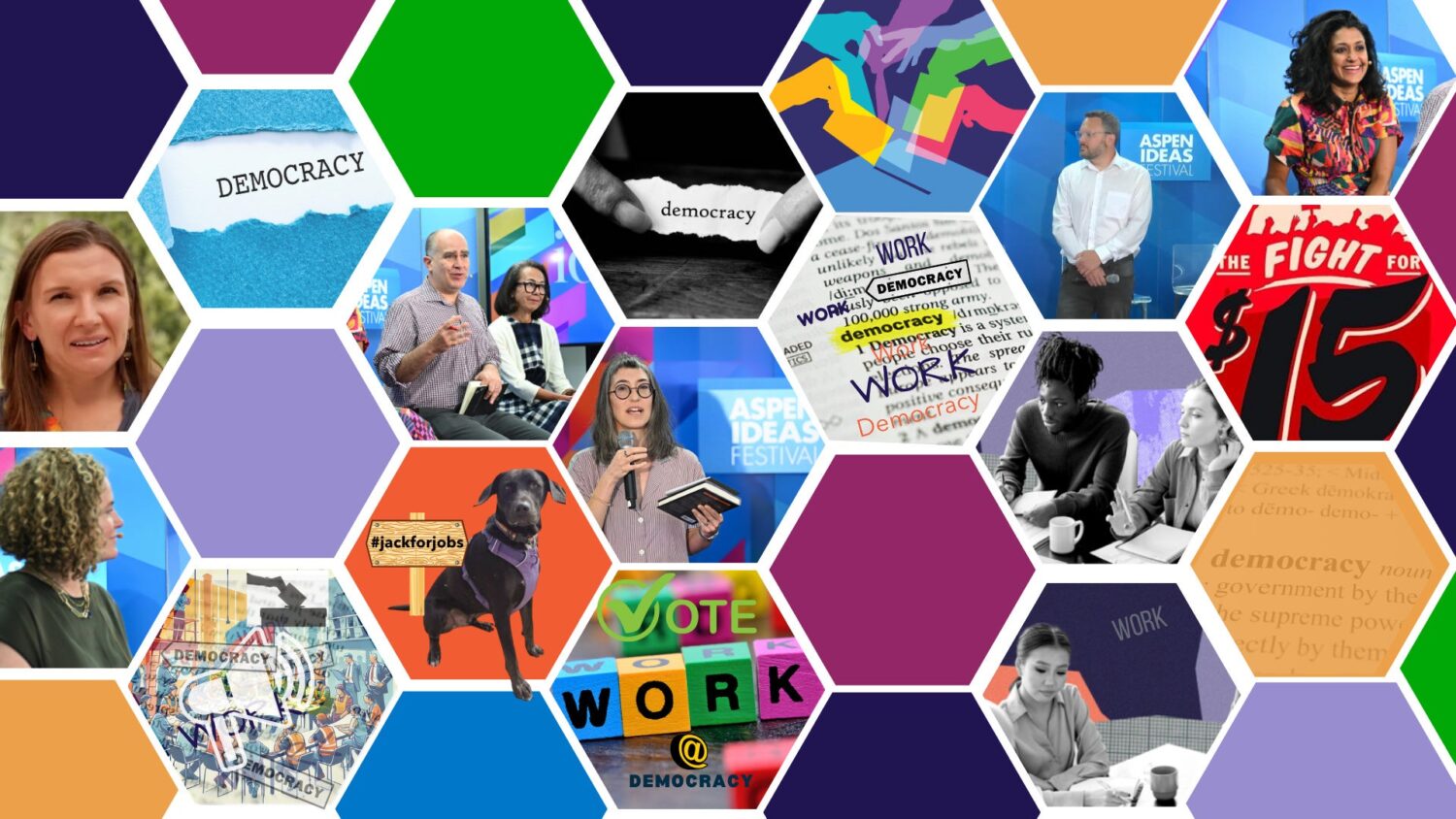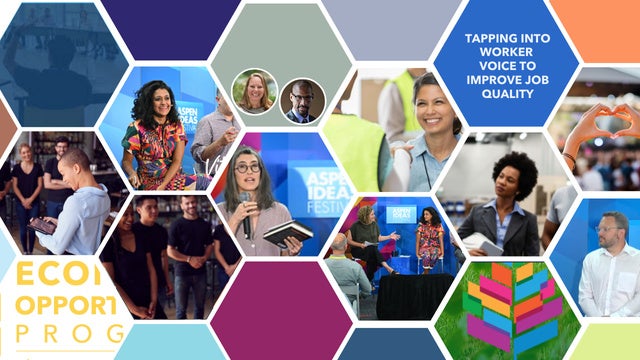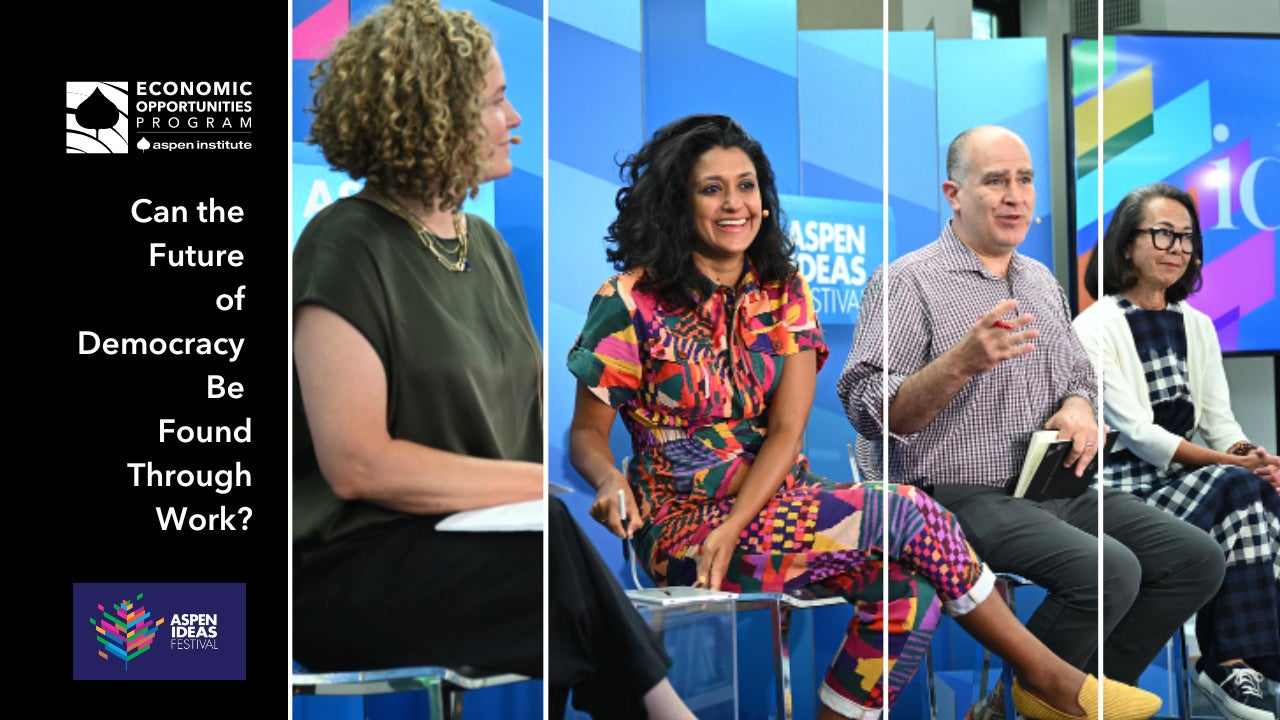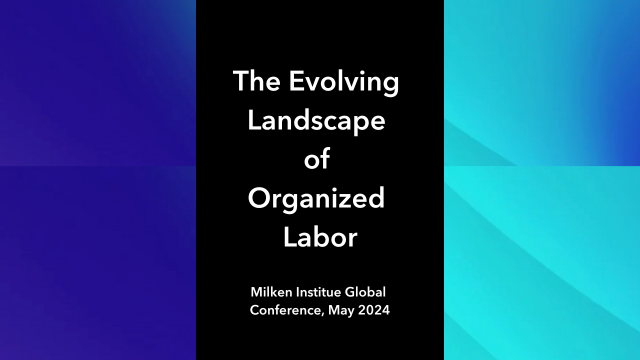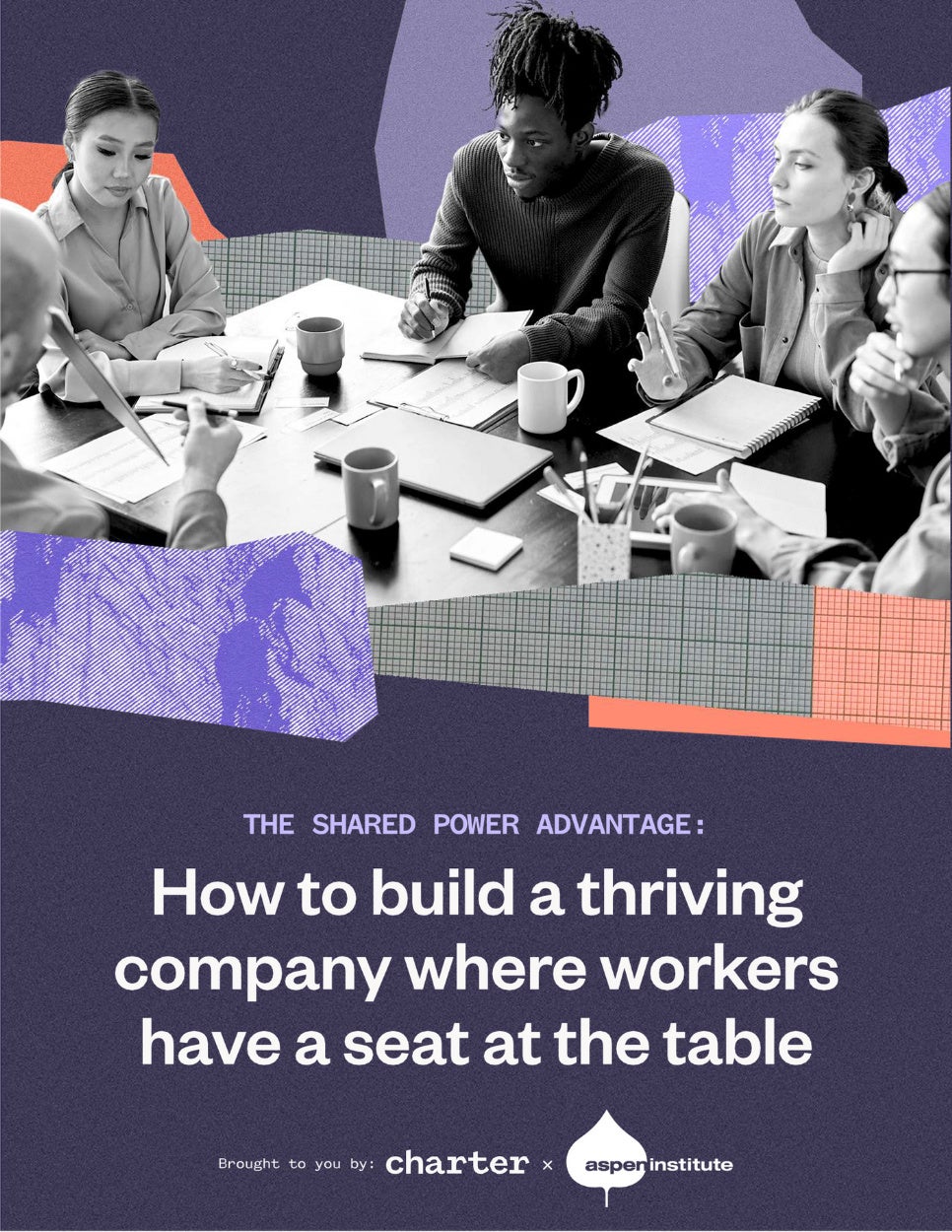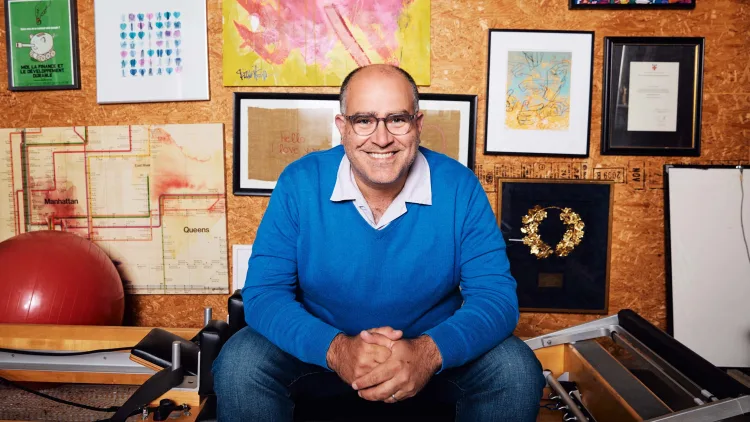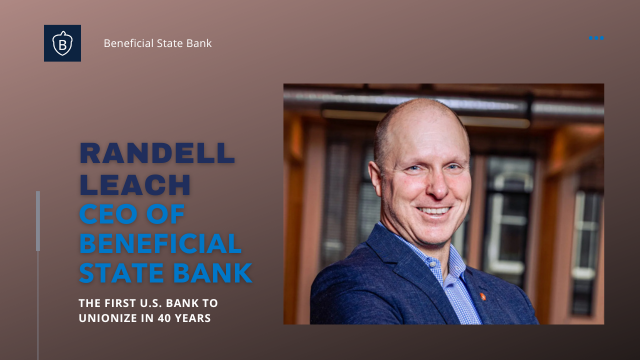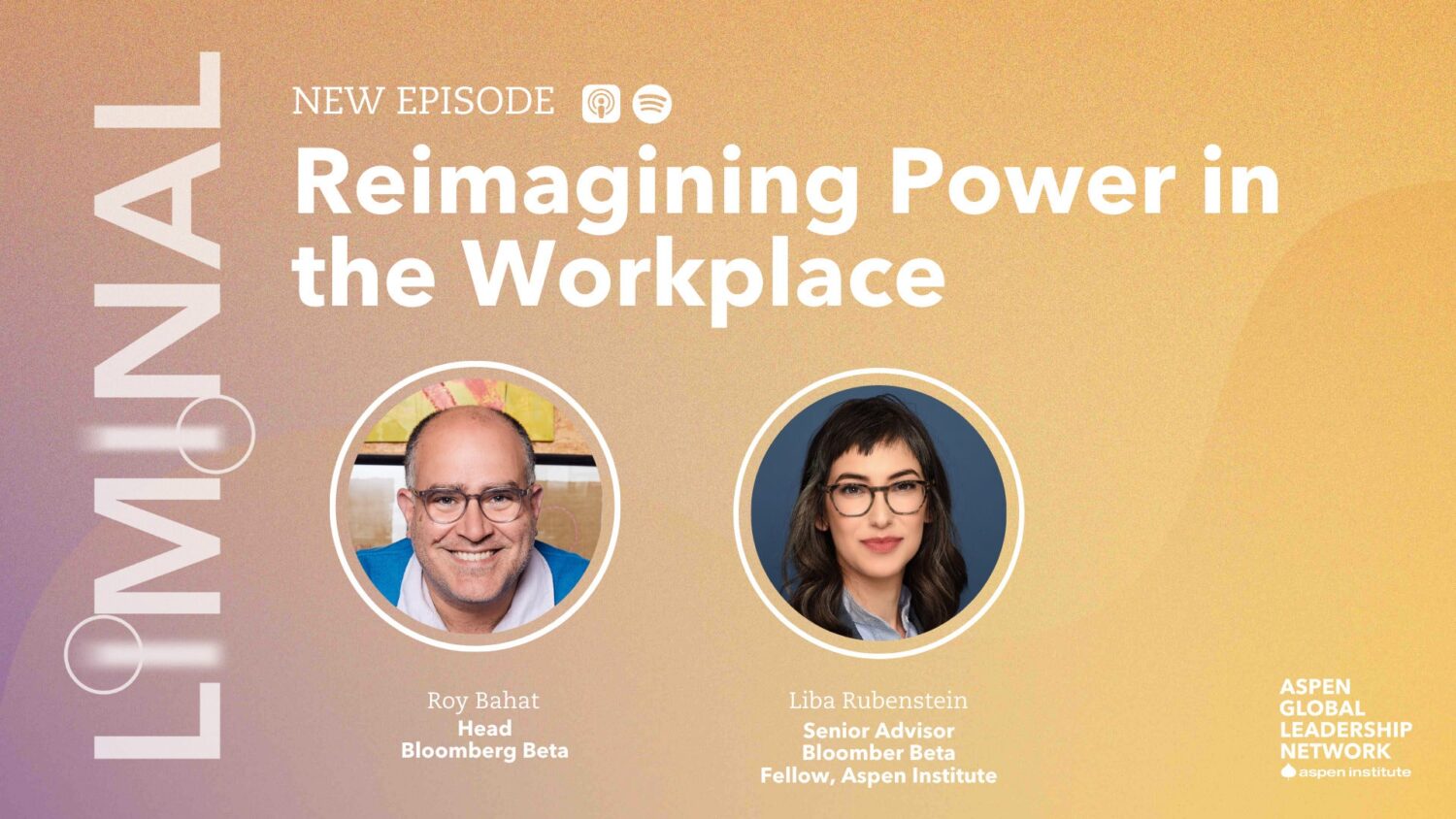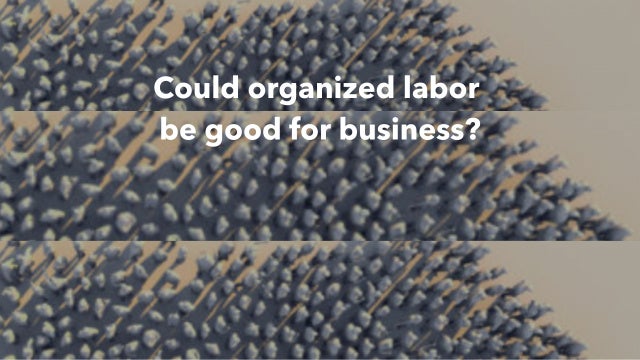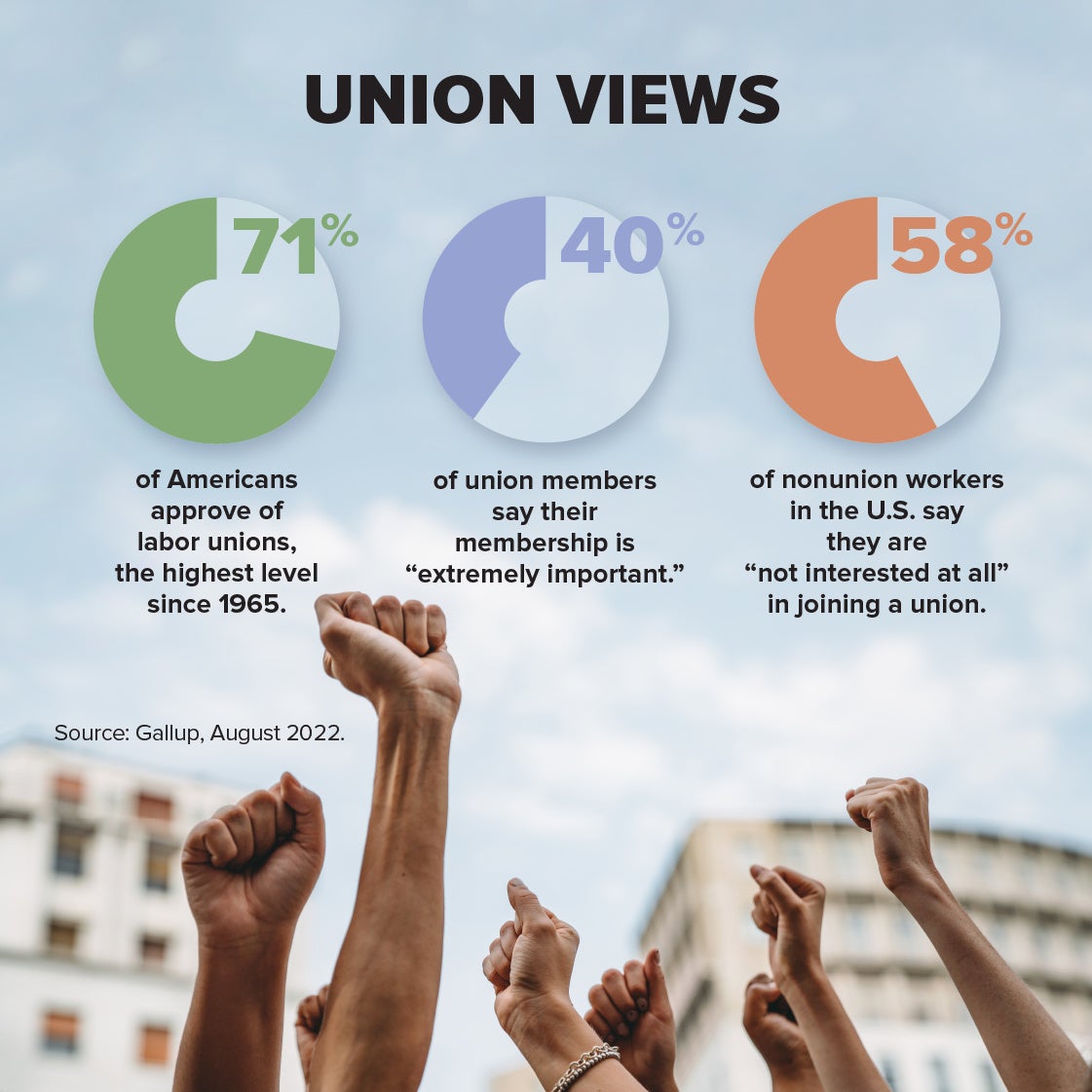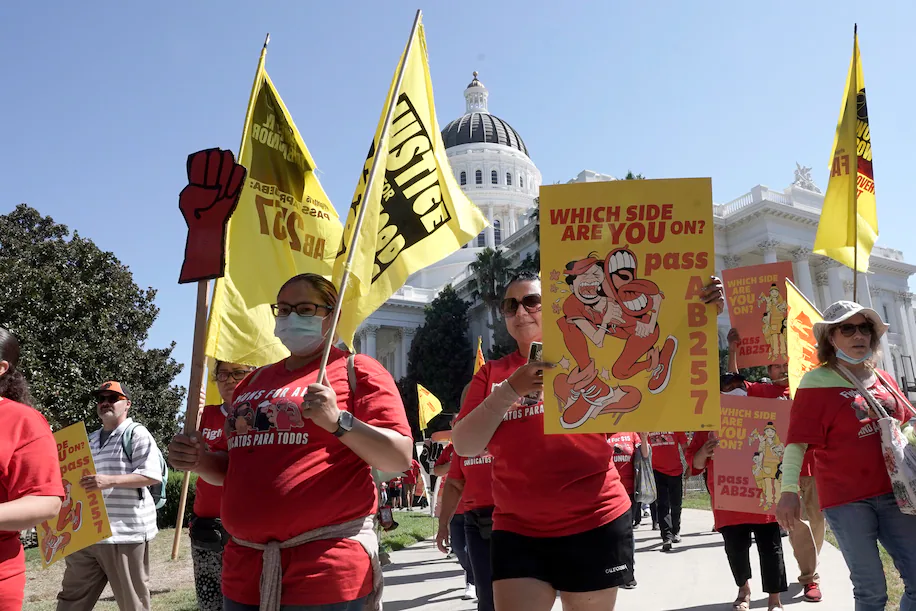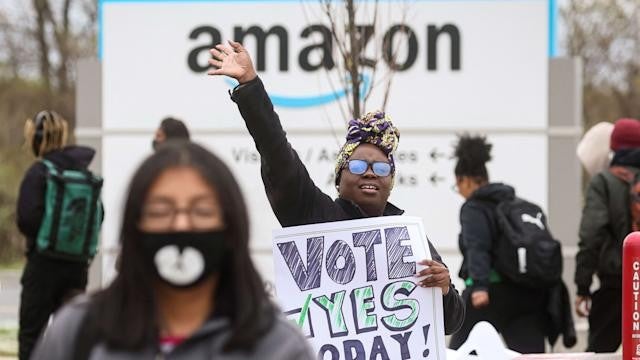Aspen Business Roundtable on Organized Labor
The Aspen Business Roundtable on Organized Labor is a private network of CEOs, founders, investors, and other business leaders reinventing corporate America’s relationship with organized labor.

About the Roundtable
Decades ago, America had many business organizations devoted to healthier relationships with organized labor. Today, the Roundtable is the only one of its kind. We host conversations among members, equip them with tools and resources, facilitate dialogue with experts and innovators in labor and academia, and share lessons in public to the wider business community. Roundtable members lead in industries as varied as construction, news media, financial services, food and beverage, health, talent management, private equity, venture capital, video games, and more. The Roundtable supports these leaders with learning, connection to one another, and ideas to create better companies and jobs – whether their workers are organized or not.
Now is the time: too many Americans cannot provide a dignified, secure life for themselves and their families – or exercise enough power in their workplace to feel proud of what they do and for whom they work. The American social contract is being tested as people reexamine long-held assumptions about the role of work in their lives, the role of corporations in society, and the health of our democracy. As a result, many workers are organizing in unions and otherwise, and many businesses face new challenges responding to those labor organizations.
At the same time, companies want stronger relationships with their workforces. Under the right conditions, organized workforces can be more productive, attract and retain talent, and enable companies to make better decisions, innovate more successfully, and govern themselves in more lasting ways. For our society, research also shows that organized workforces breed democratic values and combat polarization.
Many employers still remain suspicious of worker organizing, which is understandable given the lack of experience with organized labor over the past decades. Some of their concerns are valid, others are based on long-outdated assumptions. The norm in business – opposing all forms of labor organization – erodes trust, inhibits experimentation, blocks progress for workers, and discourages action by elected officials. There are better ways for American industry to relate to organized labor, and it’s possible that the most important and underrated skill CEOs will need in the next 20 years will be managing an organized workforce.
We look forward to continuing to build the Roundtable with a growing circle of advisors and supporters. Business leaders interested in learning more about the Roundtable are welcome to contact us.
Partners
The Aspen Institute Economic Opportunities Program convenes the Roundtable in partnership with MIT Sloan’s Institute for Work & Employment Research, with founding support from the Omidyar Network and the W.K. Kellogg Foundation.
Labor Advisors
We are grateful to our labor advisors, including:
- Mary Kay Henry (President, Service Employees International Union)
- Ai-jen Poo (President, National Domestic Workers Alliance)
- Liz Shuler (President, American Federation of Labor – Congress of Industrial Organizations)
- Erica Smiley (Executive Director, Jobs With Justice)
- Randi Weingarten (President, American Federation of Teachers)
These acknowledgements express our appreciation for their time, questions, and commitment to improving the lives of America’s working people, without implying any endorsement of actions or statements by the Roundtable or our members.
Team
The Roundtable is powered by an interdisciplinary team from multiple sectors and organizations:

Roy Bahat
Head of Bloomberg Beta
Roy Bahat is a venture capitalist at Bloomberg Beta and teaches at UC Berkeley. He also chairs the Aspen Institute’s Business Roundtable on Organized Labor and was a commissioner on the California Governor’s Future of Work Commission.

Maureen Conway
Vice President, The Aspen Institute; Executive Director, Economic Opportunities Program
Maureen Conway serves as vice president at the Aspen Institute and executive director of the Institute’s Economic Opportunities Program (EOP). Maureen has headed up workforce research at the Aspen Institute since 1999 and curates a public discussion series at the Aspen Institute, Opportunity in America, which brings together voices from business, labor, policy, human services, media, academia, and others to discuss the challenges experienced by many in today’s labor markets and new ideas for addressing these challenges. Read more.

Tom Kochan
George Maverick Bunker Professor of Management; Professor Emeritus, MIT Sloan School of Management
Thomas A. Kochan is the Emeritus George Maverick Bunker Professor at the MIT Sloan School of Management and a faculty member in the MIT Institute for Work and Employment Research.

Wilma Liebman
Former Chair, National Labor Relations Board
Wilma Liebman served on the National Labor Relations Board under three presidents of both parties, and was its chair from 2009 to 2011. Since then, she has served in various advisory roles, including as chief external ethics officer of the United Auto Workers, and she has taught at several universities, most recently the New York University School of Law. She is a member of the boards of directors of the Economic Policy Institute and Ownership Works.

Liba Wenig Rubenstein
Director, Future of Work Initiative, Economic Opportunities Program, The Aspen Institute
Liba Wenig Rubenstein is the director of the Aspen Business Roundtable on Organized Labor, where she organizes “labor-open” business leaders to explore ways their workers can have a more meaningful seat at the table. She was previously head of social impact at 21st Century Fox and Tumblr.

Merrit Stüven
Associate Director, Economic Opportunities Program, The Aspen Institute
Merrit Stüven is the associate director of the Aspen Institute Economic Opportunities Program. Her work includes managing projects and conducting research focused on job quality and economic security, primarily for lower-income workers. She is especially passionate about worker power, gender and racial equity, and creating an economic system that centers the needs of people.

